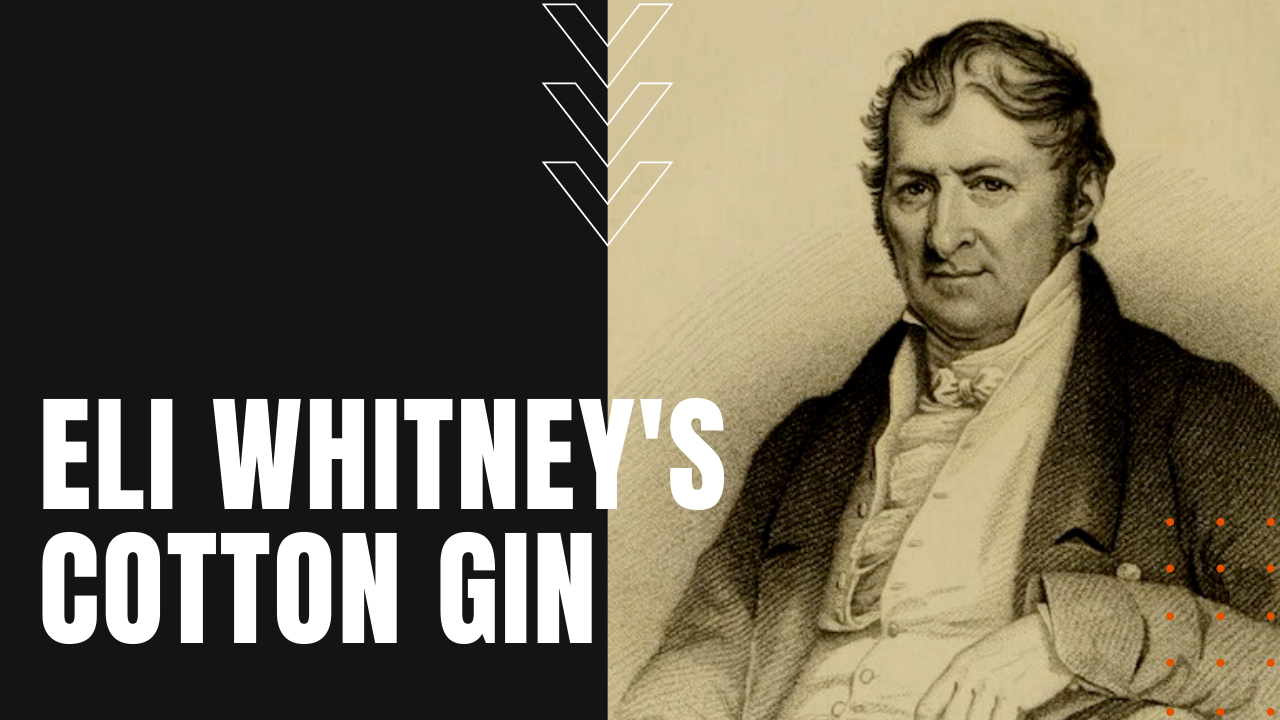Eli Whitney Invents the Cotton Gin

After graduating from Yale in 1792, Eli Whitney ventured into the deep South with plans of becoming a private tutor. Instead, he accepted an invitation from plantation owner, Catherine Greene—the widow of Revolutionary War General Nathanael Greene—to live on her Savannah plantation known as Mulberry Grove.
Which Problem with Cotton did Eli Whitney Solve by Inventing the Cotton Gin?
Whitney soon learned about the primary difficulty in harvesting cotton, which was the separation of seeds from cotton fibers, limiting a slave’s output of cleaned short-staple cotton to one pound a day. Once Greene and plantation manager, Phineas Miller, had explained the problem to Whitney, the young inventor built a machine that could efficiently remove the seeds from cotton plants.
His invention became known as the cotton gin, the later word a shortening of the word “engine,” which worked like a strainer or sieve, whereby cotton was run through a wooden drum embedded with a series of hooks that caught the fibers and dragged them through a mesh. The mesh was too fine to let the seeds through, but the hooks pulled the cotton fibers through with incredible ease.
Smaller cotton gins were hand-cranked, while larger ones were powered by horses and later steam engines and electricity. Whitney’s hand-cranked machine alone could remove the seeds from 50 pounds of cotton in a single day, which in turn boosted cotton production in the South, making cotton the leading American export by the mid-nineteenth century.
Eli Whitney’s Patented Pirating Problems
Whitney received a patent for his invention in 1794, prompting Whitney and Miller to form a cotton gin manufacturing company. The two entrepreneurs planned to build cotton gins and install them on plantations throughout the South, taking as payment a portion of all the cotton produced by each plantation.
While farmers were ecstatic over the idea of boosting their output so dramatically, they had no intention of sharing a significant percentage of their profits with Whitney and Miller. Instead, plantation owners simply pirated Whitney’s design, creating multiple iterations and improvements over Whitney’s original machines, which in turn meant little growth or profit for Whitney and Miller’s company.
Although the cotton gin made cotton processing less labor-intensive, the increase in profits from the cotton gin’s efficiency prompted plantation owners to grow larger crops, which ultimately triggered an increase in slave labor and ownership, further dividing and accelerating a nation towards the American Civil War.
